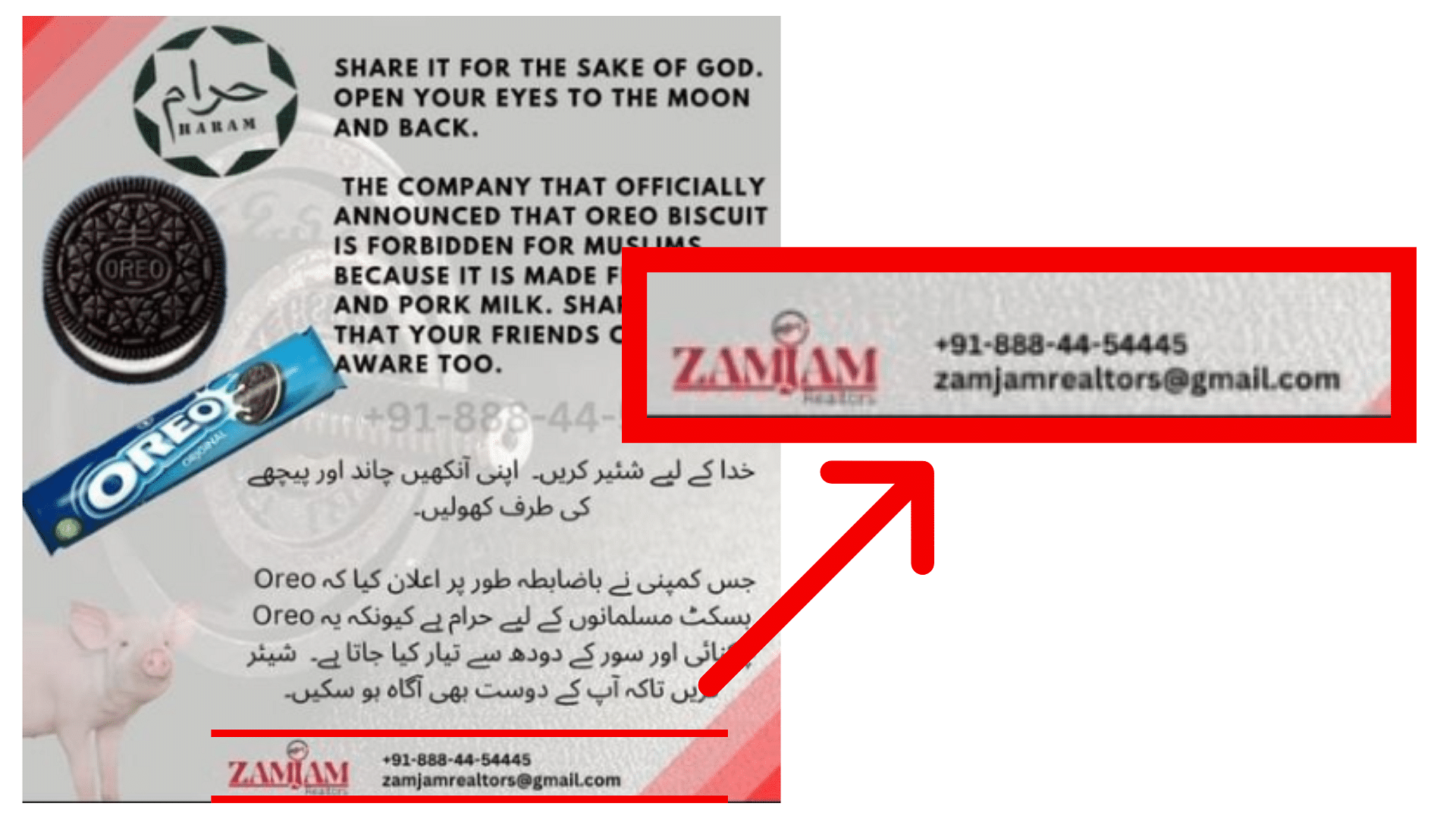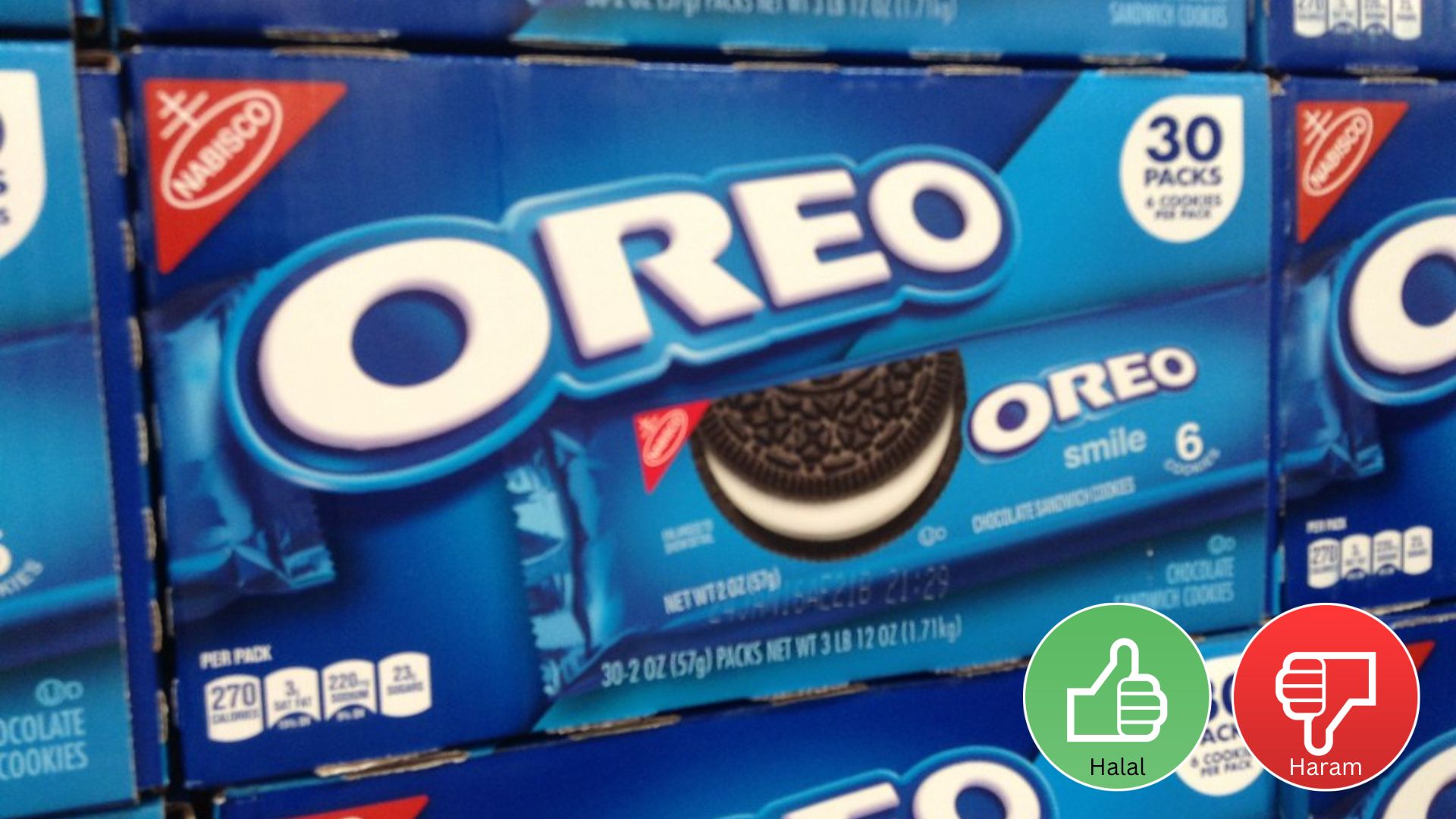Is Oreo Halal or Haram in Islam? Oreo is a popular brand of cookies that has gained worldwide recognition. As with many food products, there is often a concern among Muslims regarding the halal or haram status of certain ingredients or food items. In the case of Oreo cookies, the question arises: are Oreos halal or haram in Islam? Let’s delve into this topic and examine the available data and official statements to shed light on the matter of whether Is Oreo Halal or Haram in Islam?
To determine the halal or haram status of a food item, it is essential to understand the ingredients used in its production and the manufacturing process itself. However, it is important to note that the manufacturing processes and ingredient formulations can change over time, so it is crucial to refer to the most up-to-date information provided by official sources.
Mondelez International on Oreo’s Halal Certificaion
Mondelez International, the parent company of Oreo, has not explicitly stated that Oreos are halal-certified. However, they have made official statements regarding the suitability of their products for different dietary requirements. In response to inquiries about the halal status of their products, Mondelez International has consistently maintained that they do not use any animal-derived ingredients, except for dairy, in their Oreo cookies. They have also stated that they have a strict policy regarding cross-contamination during production and adhere to good manufacturing practices to minimize the risk of unintended ingredients.
In some regions, Mondelez International has obtained halal certification for certain Oreo products. For example, in Southeast Asia, some variants of Oreo have been certified as halal by recognized halal certification bodies. These certifications assure consumers that the products comply with the halal requirements set forth by the certifying authorities.
Process of Halal Certification
It is important to note that the halal certification process involves thorough scrutiny of ingredients, manufacturing practices, and supply chains. Halal certification bodies have specific guidelines and standards that must be met for a product to be considered halal. This includes ensuring that no haram ingredients are used, as well as verifying the cleanliness and integrity of the production process.
However, it is crucial to understand that the absence of halal certification does not necessarily mean that a product is a haram. It simply means that the product has not undergone the formal certification process. Many food items, including those without halal certification, may still be permissible for consumption according to Islamic dietary guidelines.
To address the concerns of Muslim consumers, various Islamic scholars and organizations have conducted their own investigations into the halal status of Oreos. While it is important to consult local scholars or trusted Islamic organizations for the most accurate and region-specific information, several prominent scholars have provided their opinions on the matter.
IFANCA on Oreo’s Halal status
One example is the Islamic Food and Nutrition Council of America (IFANCA), a recognized halal certification body. IFANCA has stated that they consider most Oreo products to be halal-friendly based on the information available at the time. However, they emphasize the importance of consumers checking for the halal certification on specific product packaging or seeking guidance from local halal certification authorities.
HMC on halal status of Oreos
Similarly, the Halal Monitoring Committee (HMC), a UK-based halal certification organization, has issued a statement regarding the halal status of Oreos. They have explained that while Mondelez International has not sought halal certification for its products, based on the information provided, there are no apparent haram ingredients present in Oreo cookies. Therefore, HMC considers Oreos to be suitable for consumption by Muslims.
It is crucial for Muslim consumers to stay informed about the ingredients and manufacturing processes of the products they consume. and thus be informed about whether Is Oreo Halal or Haram in Islam. Reading the ingredient labels and looking for halal certification symbols, where applicable, can provide assurance regarding the halal status of a particular food item.
Do Oreo biscuits have Pork Milk and Fat?
A while back, an infographic that claimed that Cadbury’s Oreo cookies included “fat and pork milk” was widely shared online. According to this trending infographic on social media, Muslims were instructed not to eat these biscuits since Islam forbids the consumption of any form of pork.

Later, it was revealed that the popular infographic was unfounded.
Flavors of Oreo biscuits that are not regarded as halal.
“Oreo biscuits produced in Europe are not Halal certified, but their composition or production process does not render them unsuitable for the Muslim diet,” the company’s UK website reads. The exceptions to this are:
Oreo Biscuit Flavors Not Halal:
1) Oreo Crunchy Bites Dipped
2) Oreo Strawberry Cheesecake
3) Oreo Enrobed Milk & White
4) Oreo Cadbury Coated and
5) Oreo Choco Brownie
Do Oreo Cookies Contain Gelatin?
It’s important to remember that even though the cookies might seem to be vegetarian because they don’t contain any obvious animal products like gelatin or animal rennet, they might still contain other ingredients that come from animals or may have been made in a facility that also processes animal products, which could result in cross-contamination. It is advised to thoroughly check the ingredient list and ask the manufacturer for confirmation to make sure the cookies are actually vegetarian.
Why Should Oreo Biscuits Be Classified as Halal?
The general rule for determining whether certain foods, beverages, outfits, and practices are permitted is that they are assumed to be so unless there is unmistakable proof to the contrary. The Prophet’s (peace and blessings of Allah be upon him) saying that “What I keep quiet about is permissible” lends credence to this.
This verse in the Quran appears to confirm this idea as well:
إِنَّمَا حَرَّمَ عَلَيْكُمُ ٱلْمَيْتَةَ وَٱلدَّمَ وَلَحْمَ ٱلْخِنزِيرِ وَمَآ أُهِلَّ بِهِۦ لِغَيْرِ ٱللَّهِ ۖ فَمَنِ ٱضْطُرَّ غَيْرَ بَاغٍۢ وَلَا عَادٍۢ فَلَآ إِثْمَ عَلَيْهِ ۚ إِنَّ ٱللَّهَ غَفُورٌۭ رَّحِيمٌ ١٧٣
He has only forbade you from eating things like carrion, blood, swine, and animals that have been killed in the name of someone or something other than Allah. However, if a person is just motivated by necessity and not by desire or a greater need than what is immediately necessary, they will not be sinful. Allah is undoubtedly Forgiving and Most Merciful.
Based on the foregoing, we adhere to the notion that if a thing is not explicitly stated to be haram in the Quran, Hadith, or by proper comparison, it is deemed to be halal.
Based on the above arguments and discussions, we can determine whether Is Oreo Halal or Haram in Islam.
Conclusion: Is Oreo Halal or Haram in Islam?
So is Oreo Halal or Haram in Islam? In conclusion, while Oreos do not have a universal halal certification, the available data and official statements suggest that they do not contain any haram ingredients. Mondelez International has consistently stated that they do not use animal-derived ingredients, except for dairy, in their Oreo cookies. Additionally, in some regions, certain Oreo products have obtained halal certification from recognized certification bodies. However, it is always advisable to check for halal certification symbols on product packaging or consult local scholars and halal certification authorities for region-specific information.
Now you know whether Is Oreo Halal or Haram in Islam. Read more Islamic Blogs or Follow us on social media for daily Islamic reminders.






